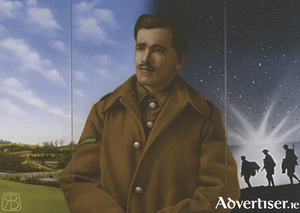Search Results for 'British army'
113 results found.
A letter sent to GA Hayes-McCoy
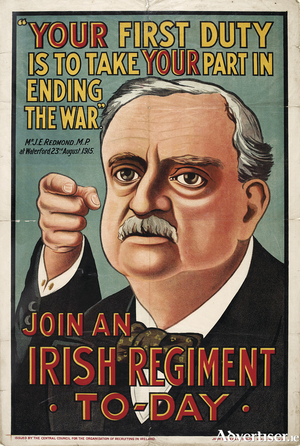
One hundred years ago there were a series of truly terrible battles on the Western Front which were watched anxiously in Ireland as elsewhere. On June 7, near the Belgian village of Messines, the Allied army won a substantial victory. It gave hope, which turned out to be tragically false, that perhaps this was the beginning of the end of the war. With the capture of the Messines ridge, the Allies were confident they could clear a path all the way down to Passchendaele, and capture the Belgian coast up the Dutch border.
Galway’s new theatrical space
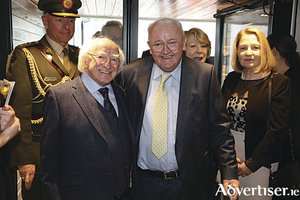
This week, NUI Galway found itself the recipient of a brand new theatrical space — one that arrives in a timely fashion and adds considerably to the city’s cultural capital. So what’s the story about the O’Donoghue Centre and how did it come about?
The Galway women who built the bombs
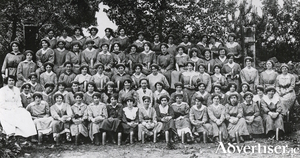
A LECTURE on the Galway women who built bombs for the British Army in WWI in the Galway munitions factory, and a film screening on the life nad work of Michael Davitt, will both take place in the Galway City Museum.
St Patrick’s NS, a bird’s eye view, 1959
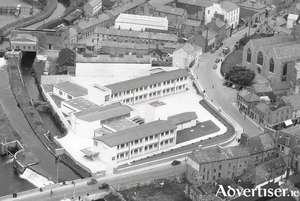
This photograph was published on March 13 1959 by Alexander ‘Monkey’ Morgan (1919-1958), a wartime pilot for the Royal Artillery Air Corps, who launched a peacetime career in aerial photography before his tragic death in a plane crash. It is a detail from one of the images he took for the Irish Independent between 1951 and 1958. Some 200 of these have now been published in book form under the title Ireland from the Air. The book is a crystal ball into the past. The images are of such high quality that the detail just leaps out. Our image today is just a section of one of the photographs which we have enlarged.
Liam Ó Briain - Memories of the Easter Rising
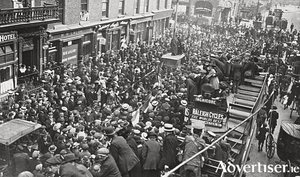
One of the real benefits of the the centenary commemorations of 1916, is the amount of research and new material that has been published on the background to the Rising, and in particular on the personalities of the men and women involved.
Former SAS soldier to speak at Galway peace meeting
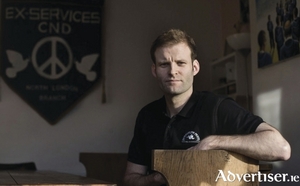
What makes a special forces operator turn peace campaigner? That will be one of the main questions answered at a public meeting tomorrow at 8pm, by Ben Griffin, a former SAS member, who, after serving three months in Iraq, refused to return to combat in Baghdad.
It’s a Long Way for Tipperary
This week, 100 years ago, British soldiers took part in the Great War battles of Doiran and Mlali. At Doiran, the British and French forces were repeatedly pushed back and finally overpowered by the Bulgarian second infantry division, while at Mlali, the British were victorious over the Germans. Victory and defeat followed each other all too frequently during the four years of the Great War.
A brief history of Galway trams and buses
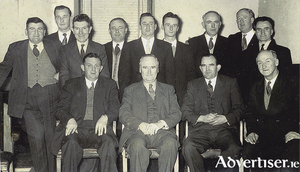
An entrepreneur named Mr Berry was probably one of the first people to organise buses in Galway. He had over a dozen horse drawn vehicles that plied regularly between Eyre Square and the Eglinton Hotel. The fare was one penny. Each vehicle was marked to carry a certain number of people and the police were vigilant to see that there was no overloading. In 1868 he bought a new bus that was allowed to carry inside and outside passengers. This could travel on longer excursions, to Barna and Oughterard, etc, but an accident on Knockbane Hill seriously affected his business.
‘Have you news of my boy Jack?’
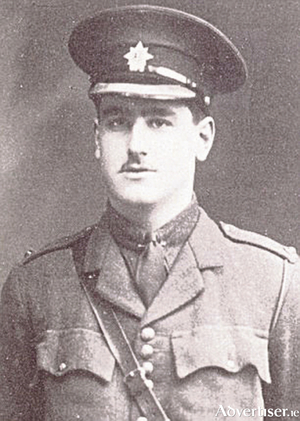
Such were the demands on many young men, not motivated by any political ideal, or heroic pressure, to fight for their king and country in 1914, but were driven by the sense of advtenture and excitement, that war often evokes in the hearts of young men, that they queued in their thousands to answer the call to arms. If unsuccessful, due to some physical deficiency (although medical check-ups were usually just a formality), family often used its influence to gain admission to the armed forces.
